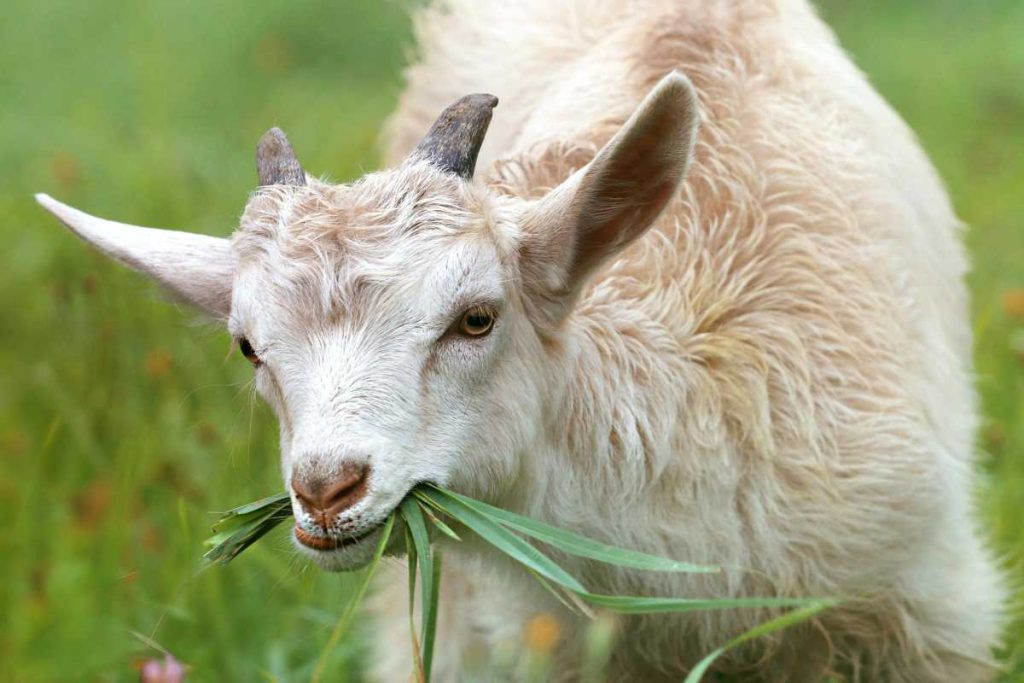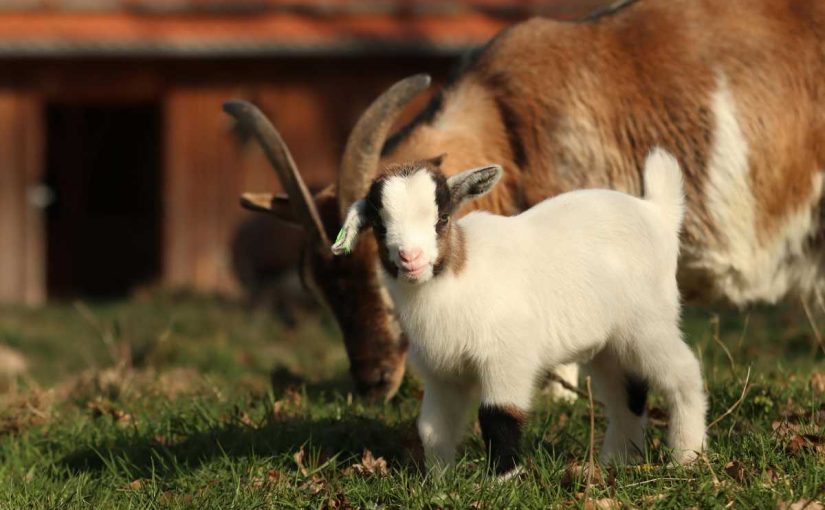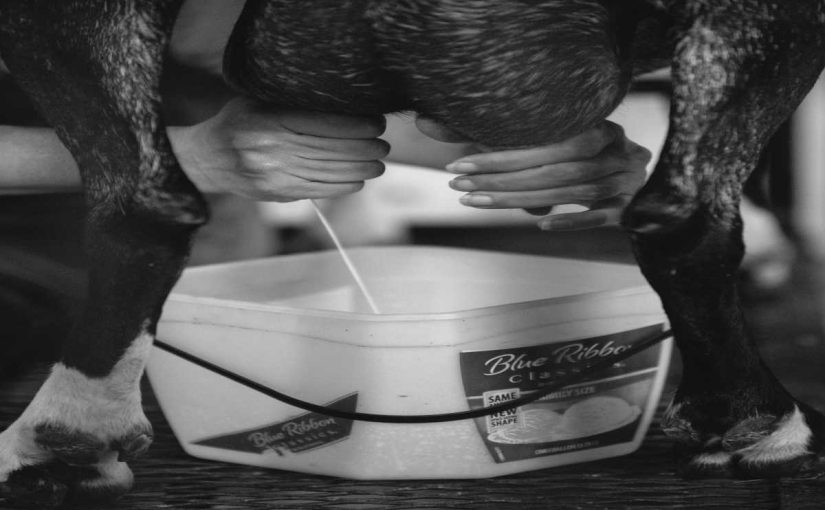Feeding goats can be both a delightful and challenging experience for new and seasoned goat owners alike. These curious and intelligent animals have specific dietary needs that, when met, contribute to their health, happiness, and productivity. Whether you’re raising goats for milk, meat, fiber, or simply as pets, understanding what to feed your goats is essential. In this comprehensive guide, we will explore the nutritional requirements of goats, suitable feed options, and best practices for feeding to ensure your goats thrive.
Understanding Goat Nutrition
Before diving into the specifics of what to feed your goats, it’s essential to understand their nutritional needs. Goats are ruminants, which means they have a complex digestive system designed to break down fibrous plant material. Their diet should be balanced and provide the following key nutrients:
- Fiber: Goats require a high-fiber diet to support healthy digestion. This primarily comes from forages such as hay and pasture.
- Protein: Essential for growth, reproduction, and milk production, protein should be included in their diet, especially for young or lactating goats.
- Vitamins and Minerals: Goats need essential vitamins and minerals to support various bodily functions. A mineral supplement can help meet these needs.
- Water: Fresh and clean water is vital for goats, as they need it for digestion and overall health.
Types of Feed for Goats
Here are the primary types of feed suitable for goats:
1. Forage
Forage should be the primary component of a goat’s diet. This includes:
- Hay: High-quality hay (such as alfalfa, clover, or timothy) is essential, especially in the winter months when fresh pasture is unavailable. Ensure the hay is free of mold and contaminants.
- Pasture: Goats thrive on fresh pasture and will graze on grasses, legumes, and browse plants. Rotating pasture can help prevent overgrazing and ensure your goats have access to a variety of plants.
- Browse: Goats love to browse shrubs, bushes, and trees. Allowing them access to browse can significantly contribute to their nutritional intake.
2. Grain and Concentrates
While forage should make up the bulk of their diet, grains and concentrates can be fed in moderation, especially for growing kids, pregnant, or lactating goats. Suitable grains include:
- Barley
- Oats
- Corn
Ensure grains are given in limited amounts, as overfeeding can lead to digestive issues.
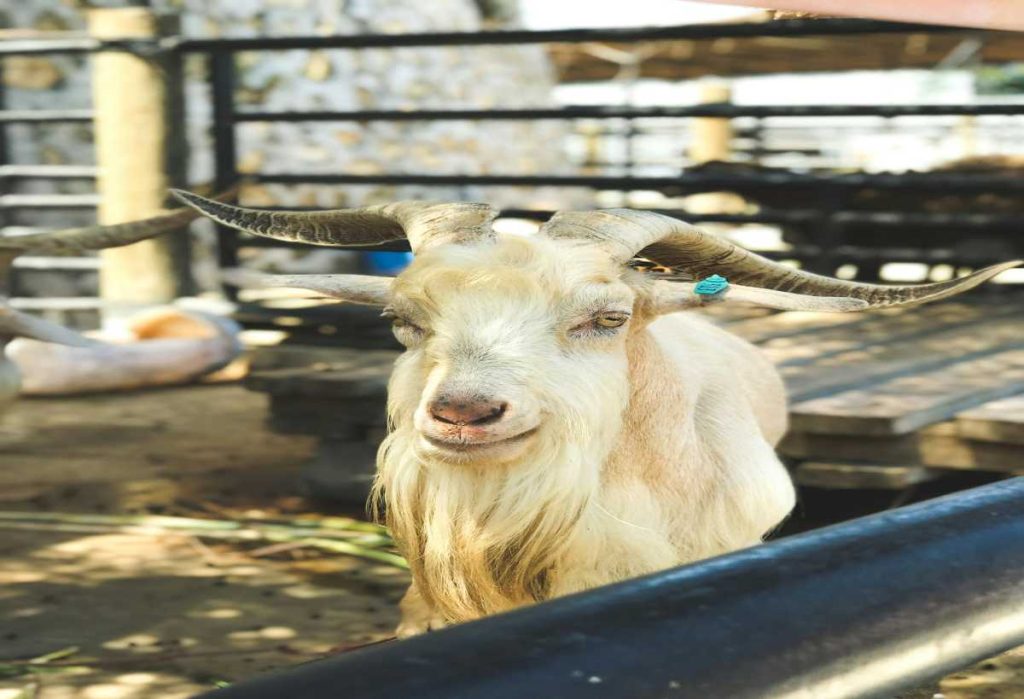
3. Commercial Goat Feed
Commercial goat feed is specially formulated to meet the nutritional requirements of goats. These feeds typically include a balanced mix of grains, protein, vitamins, and minerals. Look for feeds labeled for specific goat types, such as:
- Dairy Goat Feed: Higher in protein and energy, suitable for lactating or breeding does.
- Meat Goat Feed: Formulated for optimal growth rates in meat goats.
Always read the labels and choose a high-quality feed without fillers.
4. Mineral and Vitamin Supplements
Goats have specific vitamin and mineral needs, including calcium, phosphorus, magnesium, and trace minerals. A good quality mineral supplement specifically formulated for goats can help ensure they receive these essential nutrients.
- Salt Blocks: Provide salt blocks to ensure goats have access to necessary sodium and chloride.
- Trace Mineral Blocks: These blocks contain essential trace minerals that may be deficient in their diet.
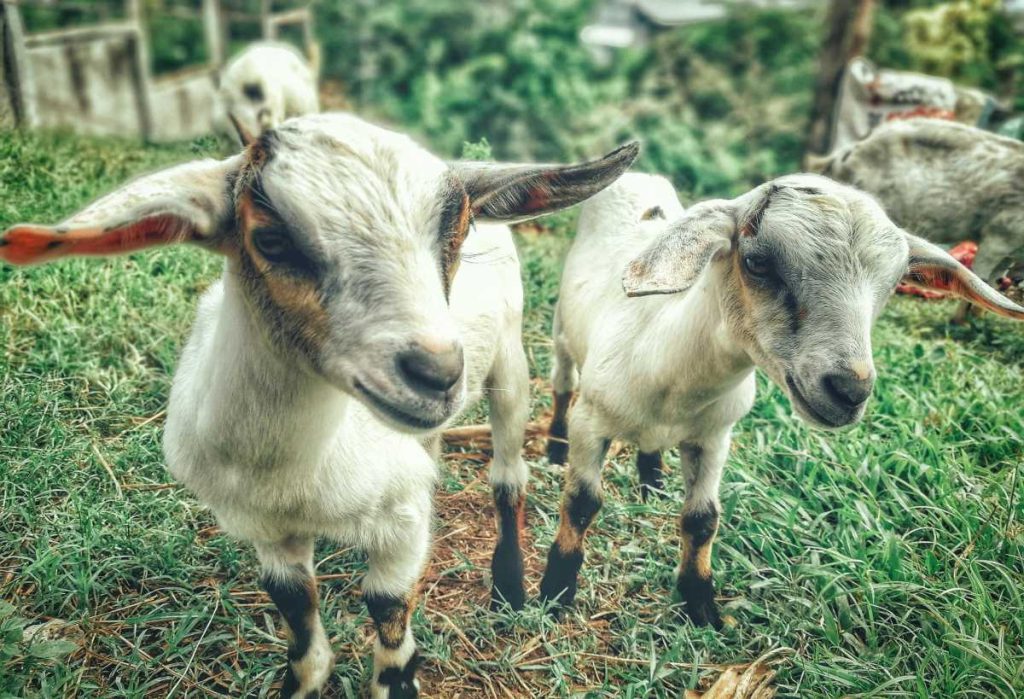
Feeding Practices for Goats
To keep your goats healthy and happy, follow these feeding practices:
1. Establish a Feeding Schedule
Goats thrive on routine. Establish a consistent feeding schedule to help them feel secure and manage their feeding effectively. Most goats can be fed twice a day, but it’s essential to adjust based on their needs and the availability of pasture.
2. Monitor Body Condition
Keep an eye on your goats’ body condition to ensure they are receiving adequate nutrition. Healthy goats should have a moderate body condition, with visible ribs but a rounded appearance. Adjust their diet based on their body condition and production needs.
3. Avoid Sudden Diet Changes
Goats can be sensitive to changes in their diet, which can lead to digestive issues like bloat. Introduce new feeds gradually over several days to allow their digestive systems to adjust.
4. Provide Clean Water
Always provide access to fresh, clean water. Goats drink a significant amount of water, especially when consuming dry feed like hay and grain.
5. Limit Treats and Snacks
While goats love treats like fruits and vegetables, these should be given in moderation. Overindulging can lead to digestive upset or obesity. Safe treats include:
- Apples (without seeds)
- Carrots
- Pumpkin
6. Observe for Signs of Nutritional Deficiencies
Regularly observe your goats for signs of nutritional deficiencies, such as poor coat condition, lethargy, or changes in appetite. Consult with a veterinarian if you notice any concerning symptoms.
Special Considerations for Goats
- Pregnant or Lactating Goats: Pregnant and nursing goats have increased nutritional needs. They require more protein and energy, so consider feeding them higher-quality hay and a concentrated feed during these times.
- Growing Kids: Kids require more protein for growth. Feeding a higher-protein grain or special goat starter feed can support their development.
- Weather Conditions: During colder months, goats may require more energy in their diet to maintain body heat. Ensure they have plenty of high-quality hay available.
- Health Issues: If goats have specific health issues, such as urinary calculi or obesity, consult with a veterinarian for tailored feeding recommendations.
Conclusion
Feeding your goats is a crucial part of their care and management. By understanding their nutritional needs and providing a balanced diet of forage, grains, and supplements, you can ensure your goats remain healthy and productive. Regular monitoring and adjustments based on their body condition and special needs will help you provide the best care for your herd. With proper nutrition, your goats will thrive, leading to happy and healthy animals that contribute to your farm or homestead in countless ways.
Happy goat-keeping! Enjoy the journey of raising these delightful creatures and all the joy they bring to your life.

